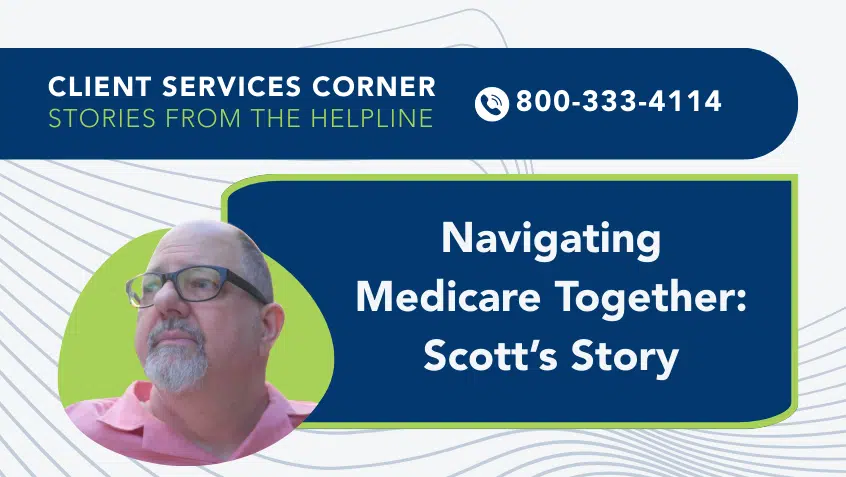Join Us Live for a Discussion on Medicare, Democracy, and the Future of Health Care
Medicare Rights Center Offers Beneficiary Perspective on Proposed Changes to Medicare Part D

Today, Joe Baker, president of the Medicare Rights Center, participated in a Capitol Hill briefing on Tackling Prescription Drug Prices: An Examination of Proposed Medicare Part D Reforms. Hosted by the National Coalition on Health Care, the goal of this educational briefing was to shed light on proposed reforms to Medicare Part D, identify the trade-offs involved, and explore the impacts on Medicare beneficiaries. Other panelists included Jack Hoadley, Research Professor Emeritus, Health Policy Institute, Georgetown University; and Len Nichols, Director, Center for Health Policy Research and Ethics, George Mason University. John Rother, President and CEO of the National Coalition on Health Care served as moderator.
In his remarks, Mr. Baker discussed the need to improve the affordability of prescription drugs for people with Medicare, citing data from the 2016 Medicare Rights Helpline Trends Report that show too many older adults and people with disabilities continue to have problems affording coverage and their prescription drugs.
He also called on Congress to maintain existing policies that achieve this goal, in particular the provisions of the Bipartisan Budget Act of 2018 that will close the Medicare Part D donut hole one year early and provide beneficiaries in the coverage gap with a higher discount on their prescription drugs. This higher discount will allow beneficiaries who fall into the coverage gap to move through the donut hole more quickly, lowering their out-of-pocket costs and making it easier for them to afford needed medication. On July 18, Medicare Rights sent a letter to congressional leaders, urging them to reject efforts that would roll back this progress or otherwise shift costs onto people with Medicare.
Mr. Baker also examined several recent drug pricing proposals and the trade-offs associated with each. Echoing comments Medicare Rights submitted earlier this week in response to the Trump Administration’s Blueprint to Lower Drug Prices and Reduce Out-of-Pocket Costs, he discussed how moving coverage of certain drugs from Medicare Part B to Part D, loosening Part D formulary standards, and requiring Part D plans to pass through rebates at the point of sale could benefit some people with Medicare but disadvantage others.
Medicare Rights appreciates the opportunity to share our experiences and perspective during today’s briefing. Looking ahead, we will continue to support efforts and advance policies to make prescription drugs more affordable that do not otherwise increase costs or reduce access to care for people with Medicare.
Read our letter to Congress on the BBA of 2018’s Part D donut hole reforms.
Show Comments
We welcome thoughtful, respectful discussion on our website. To maintain a safe and constructive environment, comments that include profanity or violent, threatening language will be hidden. We may ban commentors who repeatedly cross these guidelines.
Help Us Protect & Strengthen Medicare
Donate today and make a lasting impact
More than 67 million people rely on Medicare—but many still face barriers to the care they need. With your support, we provide free, unbiased help to people navigating Medicare and work across the country with federal and state advocates to protect Medicare’s future and address the needs of those it serves.
The Latest
Most Read
Add Medicare to Your Inbox
Sign up to receive Medicare news, policy developments, and other useful updates from the Medicare Rights.
View this profile on InstagramMedicare Rights Center (@medicarerights) • Instagram photos and videos









